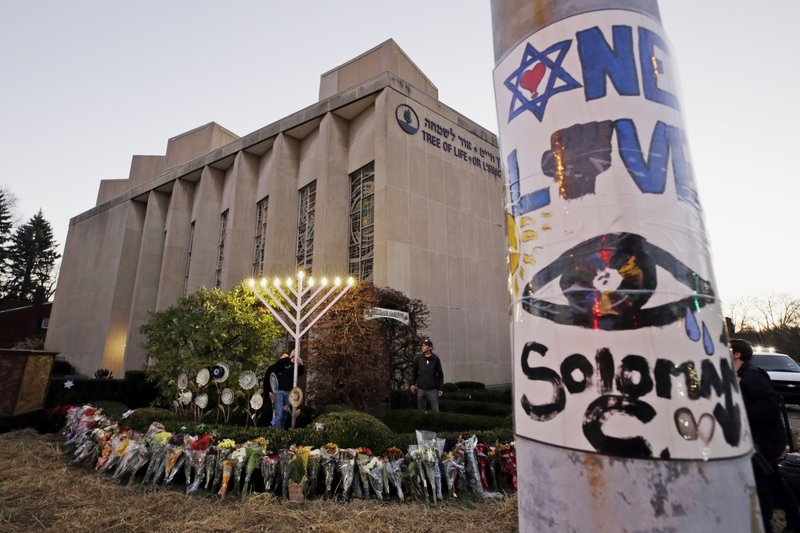WASHINGTON -- A federal judge on Friday ordered the immediate release of a man whose relatives reported concerns about his behavior and far-right extremist rhetoric after last year's Pittsburgh synagogue shooting.
U.S. District Judge Timothy Kelly in Washington, D.C., sentenced 31-year-old Jeffrey Clark to the 10 months he already has served in jail since his arrest by the FBI on gun charges. Kelly also ordered three years of court-supervised release for Clark, who told the judge that jail has changed his worldview for the better.
"What I've realized is that my words do, in fact, have consequences," said Clark, a Washington resident.
The FBI said Clark is a self-described white nationalist who followed Pittsburgh synagogue shooting suspect Robert Bowers on the Gab social media platform and referred to him as a "hero" in a post after the October shooting. Bowers spewed anti-Semitic hatred on his Gab account before killing 11 people and wounding seven inside the synagogue, authorities said.
Clark was arrested after relatives called the FBI on Nov. 2 to report their concerns that he could be a danger to himself or others. They told FBI agents that Clark became "really riled up" after his younger brother, Edward, shot and killed himself within hours of the Pittsburgh attack.
Federal prosecutors had recommended a 10-month prison sentence followed by three years of supervised release. Sentencing guidelines called for a prison term ranging from 10 to 16 months. Clark's attorney, David Bos, had asked for a sentence of time served, followed by two years of supervised release.
Bos said jail time coupled with Edward Clark's suicide has led to a "sea change in his attitude."
"Mr. Clark was kind of living in a fantasy world on the Internet," Bos said, noting that his client found it somewhat "thrilling" when his vile words earned him a measure of infamy in the darker corners of the Internet.
Clark had faced a maximum sentence of 10 years in prison after pleading guilty in July to illegal possession of a firearm by a person who is an unlawful user of a controlled substance. At the time of his arrest, Clark acknowledged that he had possessed a properly registered handgun while regularly smoking marijuana, according to his attorney.
When FBI arrested Clark on Nov. 9 and searched his home, they found fliers from a neo-Nazi organization, boxes of ammunition, body armor, a rope noose hanging above his bed and a Nazi flag containing the handwritten inscription "Hail Victory," prosecutors wrote in a sentencing memo.
"After the death of Edward Clark, Jeffrey Clark became more outspoken about his radical views, expressing them openly to his family members who were in the area following Edward Clark's death," an FBI agent wrote in an affidavit. "During these conversations, Jeffrey Clark defended Robert Bowers' killings at the Tree-of-Life Synagogue. Jeffrey Clark also stated that he and Edward Clark had both fantasized about killing 'Jews and blacks.'"
The judge agreed to prohibit Clark from possessing any firearms and ordered him to participate in substance-abuse and mental-health programs.
A Section on 09/14/2019
